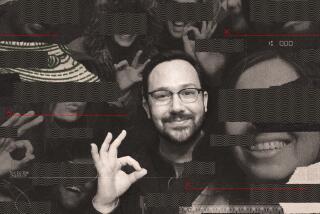Fraud Trial Begins for Ex-Rite Aid Executive
- Share via
HARRISBURG, Pa. — Former Rite Aid Corp. executive Franklin C. Brown tried to “line his pocket with millions” even as the drugstore chain’s survival was in doubt, a prosecutor told jurors Monday as the former vice chairman’s fraud and conspiracy trial got underway.
But Brown’s attorney said prosecutors were trying to blame his client, who also had been Rite Aid’s chief counsel, for the actions of others.
Brown, 75, is the first high-ranking corporate officer to face a jury since the rash of high-profile business scandals erupted across the country.
A grand jury charged Brown with conspiring with other executives at the Camp Hill, Pa.-based company in the late 1990s to falsely inflate its income and attempting to mislead federal investigators. He is accused of violating securities law, lying to accountants and auditors and knowingly keeping false books and records.
The executives allegedly underreported expenses and overstated income by hundreds of millions of dollars. In July 2000, Rite Aid was compelled to retroactively lower its net income by $1.6 billion.
Assistant U.S. Atty. Kim Douglas Daniel told jurors that several former Rite Aid executives who had pleaded guilty to federal crimes would testify against Brown.
She said Brown defrauded the nation’s third-largest drugstore chain and its stockholders, and then concealed the fraud from investigators.
Brown “attempted to line his pockets with millions at a time when the company’s very survival was in question,” Daniel said during a nearly two-hour opening statement that included a computer video presentation outlining the multifaceted case.
The case “is about corporate corruption, and it’s about greed,” the prosecutor said.
Defense attorney Reid Weingarten warned jurors that the former Rite Aid executives who were expected to testify against Brown were “perjurers who are strongly motivated to help themselves.”
Brown never asked anyone to lie, Weingarten said, and held on to Rite Aid stock options as they lost more than 90% of their value, evidence he was not part of a conspiracy to build a financial “house of cards” to benefit personally.
“Informality is not criminal intent. Mistakes are not criminal intent. Misjudgments are not criminal intent,” Weingarten said.
Five executives have pleaded guilty to federal criminal charges as a result of the scandal and await sentencing.
At least four of those executives are scheduled to testify against Brown, Daniel told jurors.
More to Read
Inside the business of entertainment
The Wide Shot brings you news, analysis and insights on everything from streaming wars to production — and what it all means for the future.
You may occasionally receive promotional content from the Los Angeles Times.










